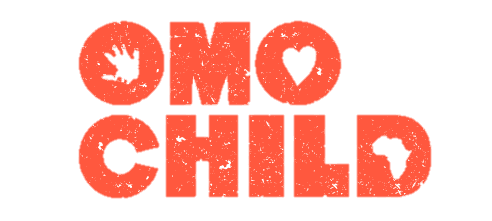OMO CHILD
About Us
Lale Labuko, Founder And Child Advocate
Lale and Gido Labuko, Founders OMO CHILD Lale Labuko is an Ethiopian activist and founder of the Omo Child home which houses children who are at risk of being killed due to tribal beliefs. Lale Labuko comes from the Kara tribe and grew up in the village of Dus on the banks of the Omo River. When he was 15 years old, he witnessed the practice of Mingi. Two of his older sisters were also killed by elders due to the practice of Mingi. In 2010, Lale and his wife Gido Labuko co-founded Omo Child home in Jinka where they care for 52 Mingi children. They are also working to save the Mingi children in the Kara, Hamer, and Bena tribes of the Omo Valley. Lale Labuko was featured in John Rowe's 2015 film Omo Child: The River and the Bush, which follows him as he tries to end the practice. |
The Mingi Secret...
Lale tells his story and explains Mingi in this National Geographic Explorer talk.
More About Mingi, And How We Can Work Together To Save Children
There is limited support for this region, partly due to its extreme remoteness.
There are nine main tribes that occupy the Omo Valley region of Southwest Ethiopia, with a total population of approximately 225,000 tribal peoples. There is very limited outside support for this region, partly due to its extreme remoteness – it is approximately a 7-hour drive to the town of Jinka over rough, pitted roads. There is no written language, and the tribe's currency is cattle and goats. The majority of the people living in the Omo Valley do not have access to clean drinking water or medical care.
In this region called "Africa's Last Frontier" by National Geographic, the tribes live a pastoral lifestyle raising their cattle and practicing flood-recession agriculture. However, fear and superstition still exists in the valley. Some of the tribes believe evil spirits or a "curse" will bring ill fortune (drought, famine, disease and death) to their villages if Mingi children are not killed.
A child can be declared Mingi for the following reasons:
• Girl Mingi - Babies born out of wedlock may be labeled Mingi by tribal elders. Expensive dowries are required to marry which leaves many couples unable to afford marriage.
• Woman Mingi - When couples are married but do not have their marriage or pregnancy approved, their babies could be declared Mingi.
• Teeth Mingi - Children that get their top teeth before their bottom teeth, or if they have chipped a baby tooth, may be declared Mingi by tribal elders.
• Twin Mingi - The birth of twins is perceived as a curse and both babies may be declared Mingi. When a child is determined to be Mingi by the tribal elders, the tribe will leave the child out alone in the bush without food and water or place the child under "house arrest" and not allow them to have food. This means certain death for the child if they are not rescued. Sometimes, the child will be drowned in the river. OMO CHILD's 51 children were rescued by Lale Labuko or others who were able to negotiate with the tribes to let the Mingi children live outside the tribe.
Up until recently, three Omo Valley tribes practiced Mingi - the Kara, the Banna and the Hamer tribes. The practice was ended last summer in Lale Labuko's own Kara tribe, as a result of Lale & OMO CHILD's impassioned advocacy efforts with the Kara tribal elders. Lale Labuko and others American guests attended the official Kara tribal ceremony in Dus village, ending the practice of Mingi on July 14, 2012. OMO CHILD has been honored by the Ethiopian Government with a special certificate for its work with the Kara tribe, and helping to end the practice of Mingi. Unfortunately, the Hamer tribe, with an estimated population of 50,000, continues to practice Mingi. OMO CHILD continues talking to Hamer elders, mothers, young adults and government officials, educating and advocating for the end of Mingi.
You can help raise up resuced Mingi children to be leaders in their communities, helping to end the practice of Mingi. Click below to learn more about how to help.
In this region called "Africa's Last Frontier" by National Geographic, the tribes live a pastoral lifestyle raising their cattle and practicing flood-recession agriculture. However, fear and superstition still exists in the valley. Some of the tribes believe evil spirits or a "curse" will bring ill fortune (drought, famine, disease and death) to their villages if Mingi children are not killed.
A child can be declared Mingi for the following reasons:
• Girl Mingi - Babies born out of wedlock may be labeled Mingi by tribal elders. Expensive dowries are required to marry which leaves many couples unable to afford marriage.
• Woman Mingi - When couples are married but do not have their marriage or pregnancy approved, their babies could be declared Mingi.
• Teeth Mingi - Children that get their top teeth before their bottom teeth, or if they have chipped a baby tooth, may be declared Mingi by tribal elders.
• Twin Mingi - The birth of twins is perceived as a curse and both babies may be declared Mingi. When a child is determined to be Mingi by the tribal elders, the tribe will leave the child out alone in the bush without food and water or place the child under "house arrest" and not allow them to have food. This means certain death for the child if they are not rescued. Sometimes, the child will be drowned in the river. OMO CHILD's 51 children were rescued by Lale Labuko or others who were able to negotiate with the tribes to let the Mingi children live outside the tribe.
Up until recently, three Omo Valley tribes practiced Mingi - the Kara, the Banna and the Hamer tribes. The practice was ended last summer in Lale Labuko's own Kara tribe, as a result of Lale & OMO CHILD's impassioned advocacy efforts with the Kara tribal elders. Lale Labuko and others American guests attended the official Kara tribal ceremony in Dus village, ending the practice of Mingi on July 14, 2012. OMO CHILD has been honored by the Ethiopian Government with a special certificate for its work with the Kara tribe, and helping to end the practice of Mingi. Unfortunately, the Hamer tribe, with an estimated population of 50,000, continues to practice Mingi. OMO CHILD continues talking to Hamer elders, mothers, young adults and government officials, educating and advocating for the end of Mingi.
You can help raise up resuced Mingi children to be leaders in their communities, helping to end the practice of Mingi. Click below to learn more about how to help.
Support Rescued Children And End Mingi In The Omo Valley.
We need your help!
Our Omo Child Program Team
Buche Solomon
Project Manager
Gido Sura
Operations Manager
Gulilat Kadi
Hamer Tribe Rescue Facilitator
Lale Sime
Kara Tribe Rescue Facilitator
Mihiret Melaku
Finance
Temesgen Belaye
Driver and Cashier
Fanaye Wolde
Logistics/Acquisitions
Abinet Alemu
Supervisor/Lead Mama
Birtukan Debele
Nurse
Tizita Mikire
Mama
Aster Beno
Mama
Sero Adame
Mama
Zewuditu Tadesse
Mama
Tsehay Abebe
Mama
Almaz Ali
Mama
Betelhem Terefe
Mama
Genizebe Gelebo
Mama
Dersanhiwot Daniel
Cook
Adimasua Aragaw
Cook
Meselech Mahi
Cook
Amarech Galish
Janitor
Bereket Negele
Janitor
Paulos Dea
Security Guard
Luma Baro
Security Guard
Musitefa Sule
Security Guard
Musitefa Sule
Security Guard
Tariku
Groundskeeper
Omo Child Primary School Staff
Hussein Endirs
Principal
Loperito Aronong'ole
English
Valerie Mora
English
Hussein Endirs
Principal
Ermiyas Dejene
Math Teacher
Abeba Wondowosen
Basic Integrated Science
Temesgen Eshetu
Amharic
Bereket Beyene
Environmental Science
Mesfin Mayza
Health and Physical Education
Wonidu Tamiru
Social Studies
Sara Tariku
Administrator

